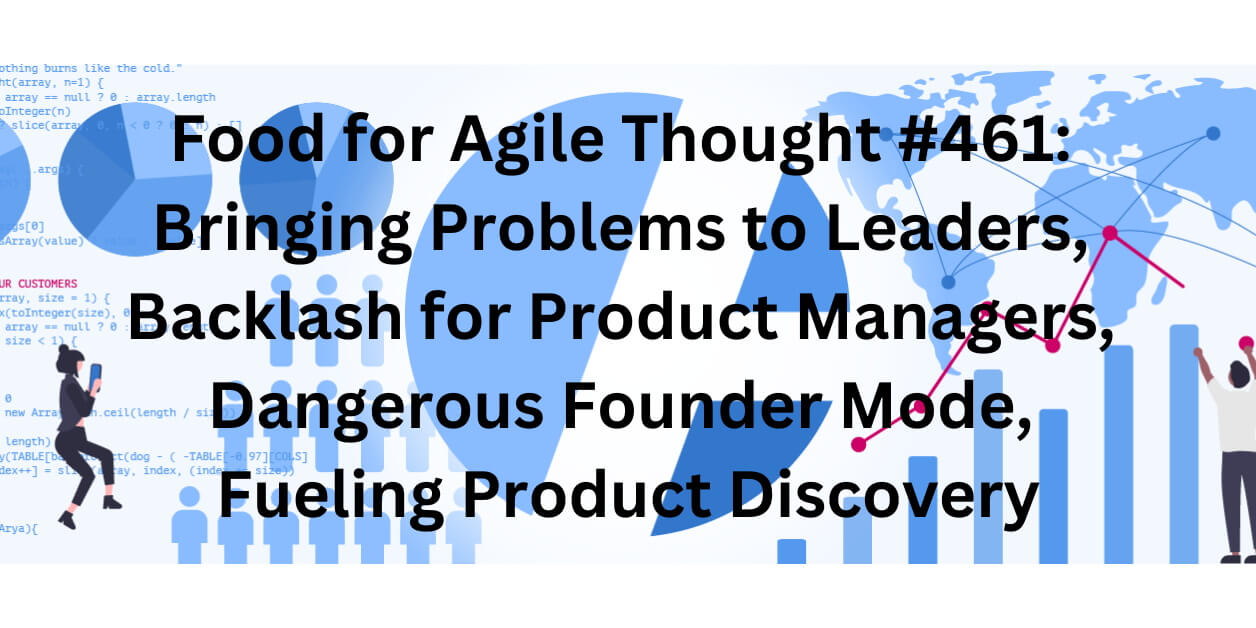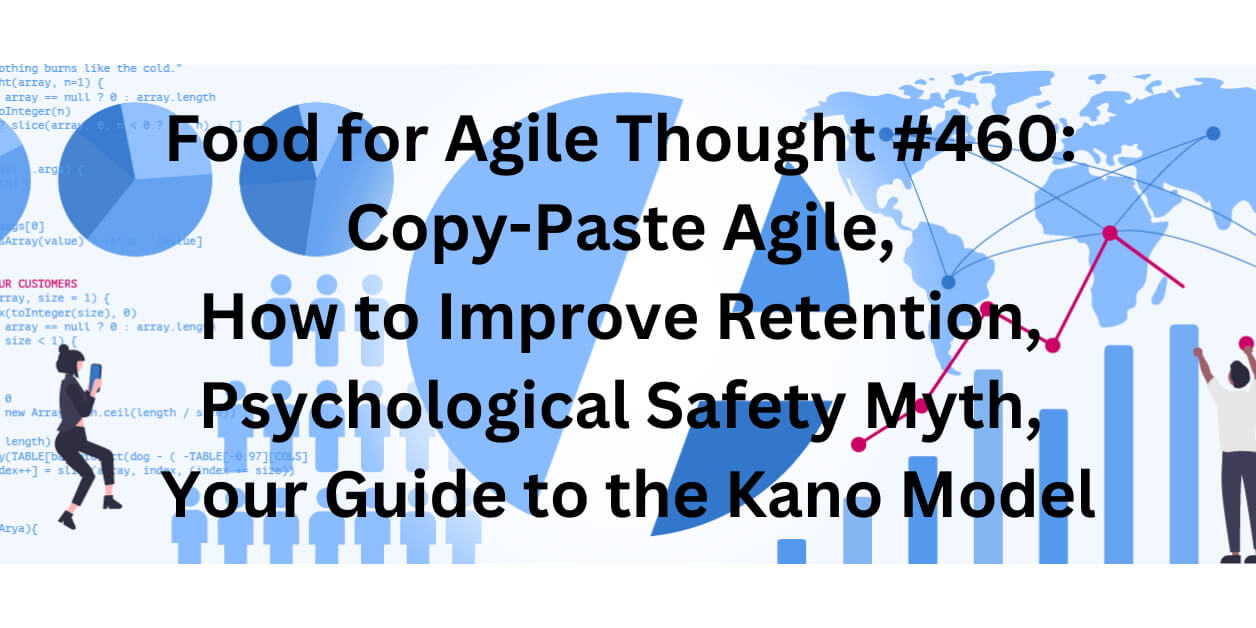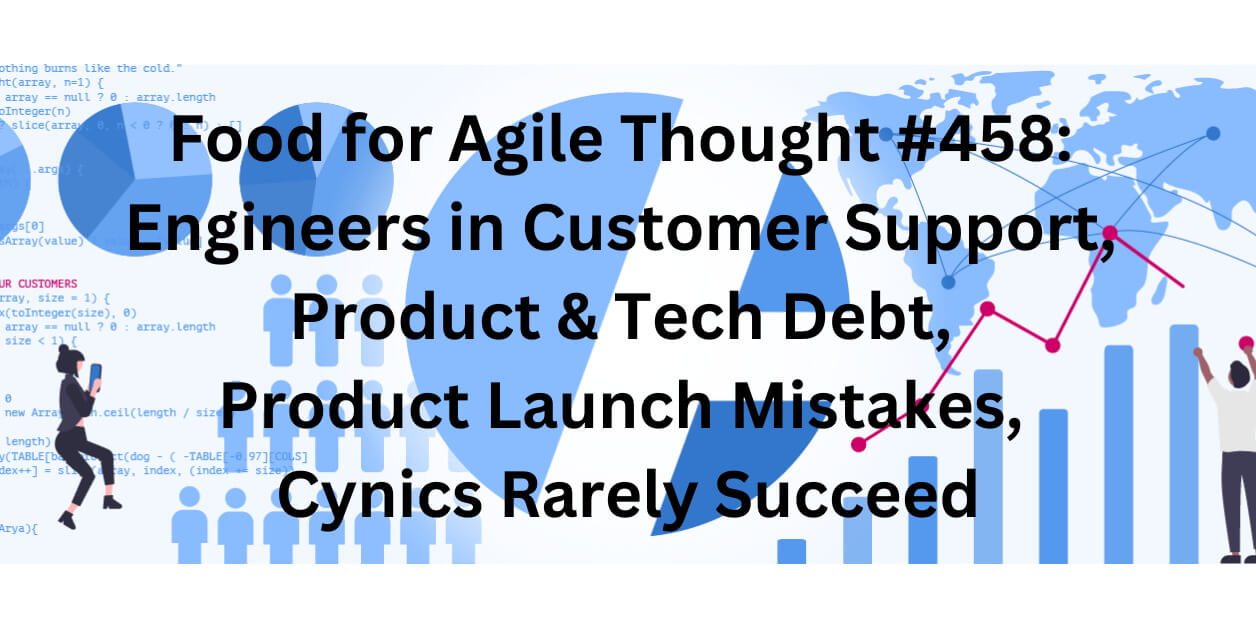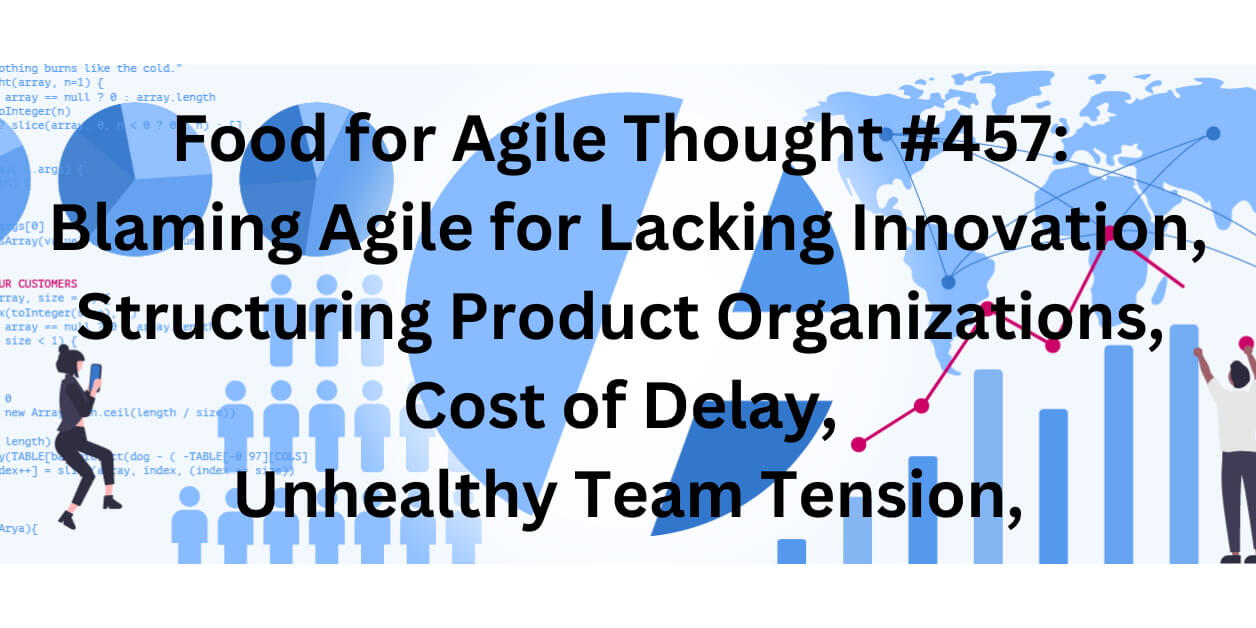TL; DR: Bringing Problems to Leaders — Food for Agile Thought #461
Welcome to the 461st edition of the Food for Agile Thought newsletter, shared with 42,821 peers. This week, Ant Murphy advocates for bringing problems to leaders to foster collaboration and empathy over the ‘don’t bring me problems, bring me solutions’ mindset, while Melissa Perri critiques Paul Graham’s ‘Founder Mode,’ urging founder CEOs to balance vision with scalable strategies. Murray Robinson, Shane Gibson, and William Malek explore Haier’s decentralized operating model, and Shane Hastie and Declan Whelan emphasize the importance of technical health and Agile practices. Chris Matts critiques escalations, highlighting their role in reinforcing dysfunctional leadership, and a deep dive explores the perils of Founder Mode’s micromanagement and lack of transparency.
Next, Peter Yang addresses the growing negativity towards product managers, offering ten actionable insights to regain respect. Also, in conversation with Lenny Rachitsky, Camille Fournier discusses platform engineering frustrations and tips for new managers. Rohan Dehal explores how business models shape product strategy, focusing on aligning user needs with business goals, and Andrew Chen critiques common startup pivots, urging founders to prioritize refining their core product and targeting top users for success.
Lastly, John Cutler highlights three models—capability trees, customer journeys, and growth loops—that prevent siloed thinking in product development. At the same time, Maarten Dalmijn urges teams to prioritize value over timelines, Bandan Jot Singh critiques NPS, advocating for real-time sentiment analysis in D2C companies, and Paweł Huryn shares 12 key sources for product discovery. Finally, Jason Cohen explores the accuracy of crowd wisdom in objective scenarios but warns against its stifling effect on innovation in creative work.







